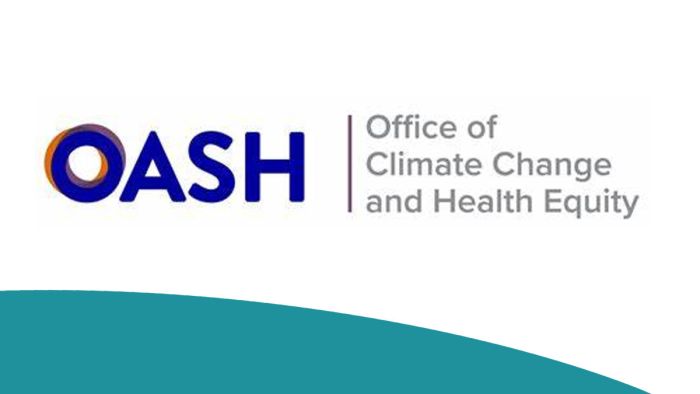Gillette Children’s leadership recognized by Administration officials at COP27
Gillette Children’s was celebrated by the U.S. Department of Health and Human Services (HHS) at the 2022 United Nations Climate Change Conference (COP27) for pledging ongoing action to decarbonize the health care sector and make health care facilities more resilient to the effects of climate change. Gillette Children’s has formally committed to pursuing the Biden administration’s climate goal of reducing emissions by 50 percent by 2030 and achieving net zero emissions by 2050.
A September 2021 consensus statement from more than 200 medical journals named climate change the number one threat to global public health. It exposes millions of people in the United States to harm every year—with disproportionate impacts on communities that are often already the victims of longstanding discrimination—through increases in extreme heat waves, wildfires, flooding, vector-borne diseases and other factors that worsen chronic health conditions. The healthcare sector also contributes to climate change, accounting for approximately 8.5 percent of U.S. domestic emissions.
The HHS Office of Climate Change and Health Equity (OCCHE), part of the Office of the Assistant Secretary for Health, developed the White House/HHS Health Sector Climate Pledge to help focus industry response to climate challenges. In addition to reducing their carbon footprint, signatories also commit to producing detailed plans to prepare their facilities for both chronic and acute catastrophic climate impacts.
One hundred two prominent health companies in the U.S. have signed the White House/HHS Health Sector Climate Pledge, including organizations representing 837 hospitals as well as leading health centers, suppliers, insurance companies, group purchasing organizations, pharmaceutical companies, and more. Federal systems like the Indian Health Service (IHS), Veterans Health Administration (VHA), and Military Health System (MHS) are working together to meet similar goals to those these private sector organizations have embraced. Combined, this means that over 1,080 federal and private sector hospitals have made such commitments, together representing over 15 percent of U.S. hospitals.
“HHS returns this year to COP27 to report great progress,” said ADM Rachel Levine, the Assistant Secretary for Health. “Through the efforts of the Office of Climate Change and Health Equity and several other HHS agencies, we have made significant strides in introducing resources and supports to help communities and care providers accelerate their work to reduce harmful emissions and increase climate resilience in the health sector.”
About Gillette Children’s
Gillette Children's specializes in treating complex brain, bone and movement conditions that begin in childhood. We provide comprehensive services, highly trained specialists, an integrated team approach, family-centered care and a lifetime of services.
About the Office of Climate Change and Health Equity
The Office of Climate Change and Health Equity (OCCHE) plays a vital role in protecting the nation’s health from climate change-related risks, including extreme heat, natural disasters, vector-borne diseases and more. Among the supports OCCHE provides for health sector companies that wish to reduce their environmental impact and become more resilient to the effects of climate change are a webinar series and associated compendium of federal resources to support emissions reduction and resilience. OCCHE also publishes a regular Climate and Health Outlook, an effort to inform health professionals and the public on how our health may be affected in the coming month(s) by climate events and provide resources to take proactive action.
 Home Page
Home Page

